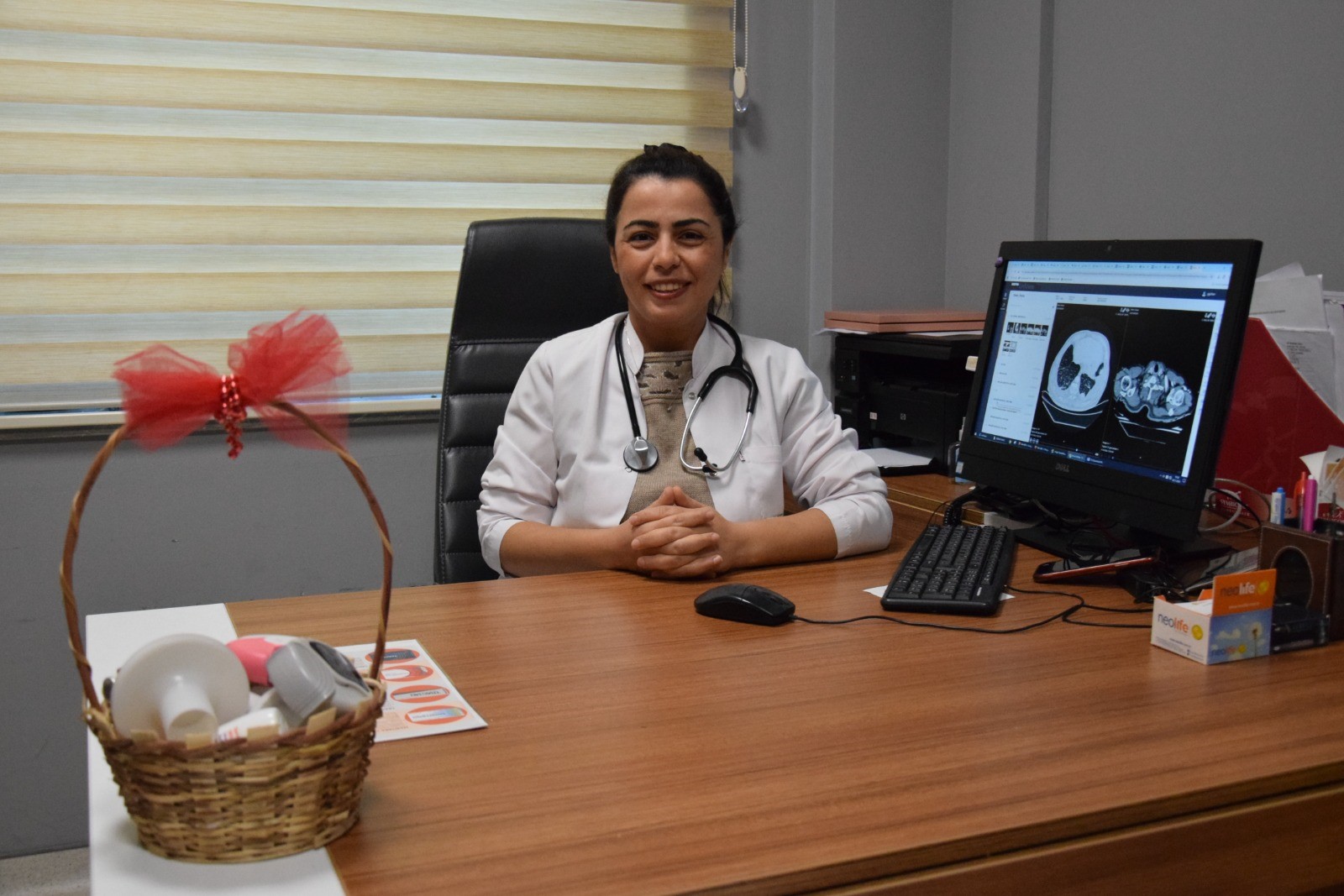
Pınar Yıldız, Associate Professor of the Department of Chest Diseases, stated that pneumonia is especially common in winter months and said, “It can be mixed into the air through coughing or sneezing and can be transmitted to other people.”
Düzce University Faculty of Medicine, Department of Chest Diseases Faculty Member Assoc. Prof. Dr. Pınar Yıldız shared important information on November 12, World Pneumonia Day. Stating that pneumonia is a disease caused by inflammation of the air sacs in our lungs, Assoc. Prof. Dr. Pınar Yıldız said, “This inflammation is usually caused by microorganisms such as bacteria, viruses or fungi. These airborne germs mix into the air through coughing or sneezing and when we breathe this air, they can reach our lungs and cause infection.”
“It is more common in people with weak immune systems”
Pointing out that pneumonia is an important health problem worldwide and can affect people of all ages, Assoc. Prof. Dr. Yıldız said, “It is more common in children, the elderly and people with weak immune systems. According to World Health Organization data, pneumonia affects millions of people every year and continues to be one of the leading causes of child mortality, especially in developing countries. Pneumonia is also a common disease in Turkey, especially in winter months. According to the statistics of the Ministry of Health, pneumonia accounts for a significant portion of hospitalizations in our country.”
“Pneumonia is a contagious disease”
Emphasizing that pneumonia is a contagious disease, Assoc. Prof. Dr. Yıldız said, “As I mentioned before, the germs that cause the disease can get into the air through coughing or sneezing and infect other people. In addition, contact with items used by infected people can also lead to the transmission of the disease.”
Yıldız added that adults over the age of 65, children under the age of 2, people with weak immune systems (HIV/AIDS, cancer treatment, etc.), people with chronic diseases (asthma, COPD, diabetes, etc.), smokers and those living in nursing homes or nursing homes are at risk for pneumonia.
Stating that the symptoms of pneumonia can vary depending on the cause of the disease and the general health status of the person, Pınar Yıldız said that cough, fever, chills, shortness of breath, chest pain, fatigue and weakness, loss of appetite, nausea, vomiting and headache are the most common symptoms of the disease.
Noting that pneumonia is usually diagnosed by physical examination, patient history and imaging tests, Assoc. Prof. Dr. Yıldız said, “In the physical examination, your doctor will listen to your lungs with a stethoscope and check for abnormal sounds such as wheezing or rales. A chest x-ray is used to show inflammation in the lungs. Blood tests may be done to determine the infection and its cause. A sample of sputum from the cough is examined in a laboratory to identify the microorganism causing the infection. In some cases, additional tests such as computed tomography (CT) scanning, bronchoscopy or lung function tests may be required.”
“Smoking increases the risk of pneumonia”
Giving information about the measures that can be taken to prevent pneumonia, Assoc. Prof. Dr. Yıldız said, “Wash your hands with soap and water for at least 20 seconds, especially after coughing or sneezing, after using the toilet and before and after meals. Cover your mouth and nose when coughing and sneezing. Avoid close contact with people who have a respiratory infection such as pneumonia or flu. Smoking increases the risk of pneumonia. Eat a balanced diet, exercise regularly and get enough sleep. Get vaccinated. There are two types of vaccines against pneumonia: pneumococcal vaccines and the flu vaccine. Pneumococcal vaccines protect against the bacteria Streptococcus pneumoniae, the most common cause of pneumonia. The flu vaccine protects against the flu virus. Flu can increase the risk of developing pneumonia. Although vaccines are not 100 percent effective, they can significantly reduce the risk of developing pneumonia and the severity of the disease.”
Pointing out that the treatment of pneumonia can vary depending on the cause, severity and general health status of the person, Assoc. Prof. Dr. Yıldız said, “In mild cases, people can be treated at home and recover within a few weeks. In more serious cases, hospitalization may be required and the treatment process may take longer.”
“Be aware of pneumonia”
Stating that November 12, World Pneumonia Day is an important opportunity to raise awareness about pneumonia and to provide information about ways to prevent this disease, Pınar Yıldız said, “I invite everyone to learn about pneumonia vaccines and to ensure that people at risk are vaccinated. Remember, pneumonia can be a serious disease, but it is a preventable and treatable disease. Take care of your health and be aware of pneumonia,” she concluded her statement.
İHA Haber Kodu: 20241112AW327336